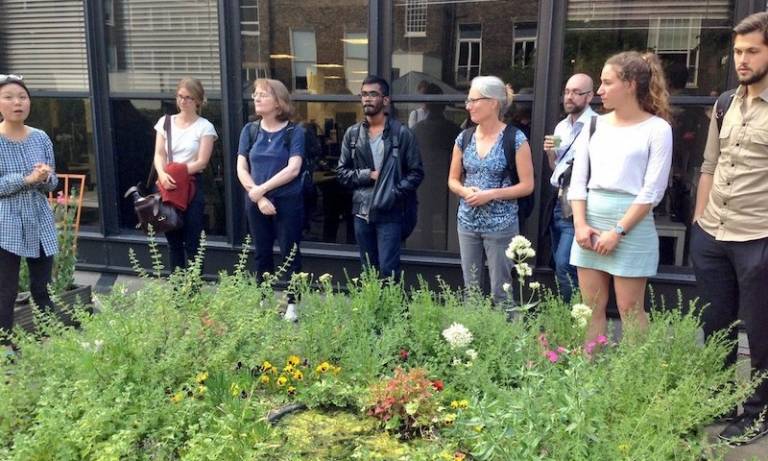The Bartlett hosts international conference on environmental psychology
10 July 2017
On 26-27 June 2017, The Bartlett hosted the British Environmental Psychology Society (BrEPS) 4th Annual Conference

BrEPS was set up in 2014 by a group of PhD students in Sheffield, with the aim of providing networking opportunities for researchers and PhD students in the field of environmental psychology.
Environmental psychology focuses on two main areas of interest. The first examines how people interact with their surroundings and the effect of the built and natural environments on the people who use them. The second considers pro-environmental behaviour, which aims to minimize individuals’ impact on the environment.
The conference was co-chaired by The Bartlett School of Construction and Project Management’s Niamh Murtagh and Evangelia Chrysikou from The Bartlett Real Estate Institute. The event took place in UCL’s Main Quad Pavilion with delegates from the UK and international environmental psychology community.
The conference provided an insight into the work of those seeking to understand how and why place and space are important in their potential to influence people in their everyday activities, those looking to encourage greater pro-environmental behaviour, and those examining the behaviours needed to produce climate-resilient and sustainable environments.
A wide range of research was presented and a few examples illustrate the variety. A particularly interesting case came from Thailand via video participation. Yannisa Niennattrakul’s research on dementia and long-stay tourism examines the ‘sensescape’ that can be offered to dementia sufferers, exploring how the richness of experience through colours, sights, smells and other sensory experiences in a new environment could help improve an individual’s condition and quality of life.
Another fascinating talk by Elefteria Savvopoulou focused on the social invisibility of mental health facilities and showed how social stigma around mental illness is reflected in architectural design and city planning.
After the formal presentations on the first day, participants visited two innovative urban green spaces. They were able to explore the UCL School of Pharmacy’s Medicinal Garden in Brunswick Square and the Institute of Education’s roof gardens. The visit gave an insight into how two UCL urban greenspace projects enhance the local natural environment and the wellbeing of staff and students.
The morning of the second day was dedicated to issues of energy, following a keynote talk from Michelle Shipworth of the UCL Energy Institute. Chris Jones from the University of Sheffield presented work which investigated the role of culture in citizens’ concerns on energy security in Greece and Turkey.
With environmental sustainability at the heart of the conference, participants were offered the option to contribute by sending a pre-recorded video. Two presentations used video and were well received by the audience. With minimal additional effort, this shows the potential for conference participation ith less carbon usage and promotes wider involvement from international researchers.
"Great to see so many young researchers"
"Understanding how places impact our well-being helps us function better as individuals and helps us understand how best to look after places."
"It is very nice and promising to see a range of people engage with regrowth, voluntary simplicity, collective action, implications of digital environments and integrate these important topics into environmental psychological research."
Find out more about BrEPS on the British Environmental Psychology Society website
 Close
Close

